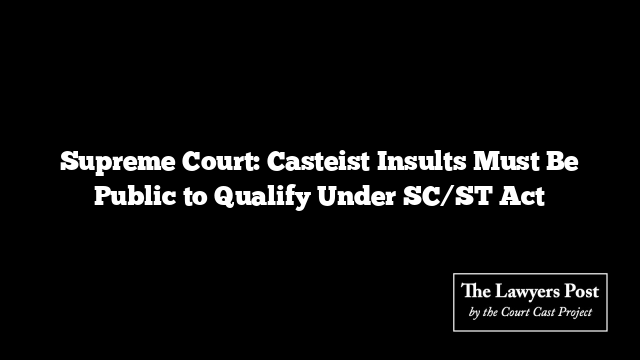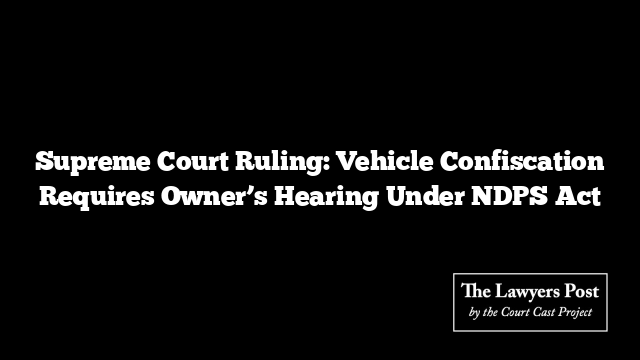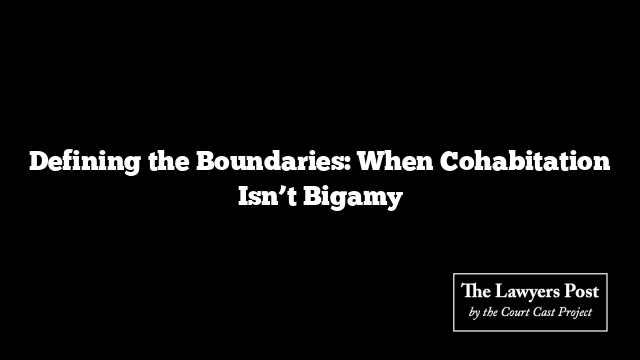In a recent judgment, the Supreme Court clarified that for casteist insults to be punishable under the Scheduled Caste and Scheduled Tribe (Prevention of Atrocities) Act, 1989, the comments must be made within public view.
The case involved an appellant who claimed an offence under the Act. He filed an application under Section 156 of the CrPC, seeking an FIR. The trial court ordered a preliminary inquiry but dismissed the application after review.
Challenging this dismissal, the appellant took the matter to the High Court, which ordered the registration of an FIR. This led the other party to approach the Supreme Court.
The Supreme Court noted that vague allegations lacking the essential elements of an offence cannot justify the registration of an FIR. Specifically, the Court examined Section 3 of the Act, which defines an offence as an intentional insult or intimidation aimed to humiliate a member of a Scheduled Caste or Tribe in a public setting.
The Court highlighted that “public view” implies visibility to others beyond the complainant. The allegations in this case lacked specificity regarding the location and presence of the public.
For instance, the appellant accused another party of using derogatory terms like “chuda” and “chamar” but failed to specify where and before whom these remarks were made. Another allegation mentioned a casteist remark on a certain date but omitted the year, raising doubts about the incident’s timing. Accusations against other appellants did not include any casteist slurs.
Given these deficiencies, the Court found the allegations did not meet the public view requirement. It upheld the trial court’s preliminary inquiry and deemed the High Court’s FIR registration order unsustainable.
The Supreme Court referenced previous rulings underscoring that Magistrates must judiciously apply their discretion under section 156(3), rather than act mechanically. The necessity of a thorough preliminary inquiry was emphasized.
In conclusion, the Court supported the trial court’s initial decision, noting the accusations lacked the public component necessary under the Act. Additionally, the Court humorously remarked on the setting of the dispute, an equestrian academy, pondering whether individuals unable to maintain personal composure could effectively train horses.





